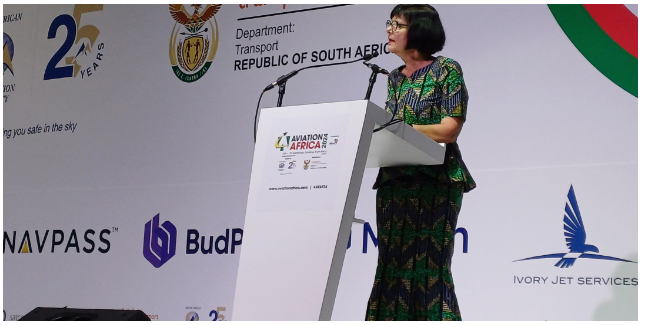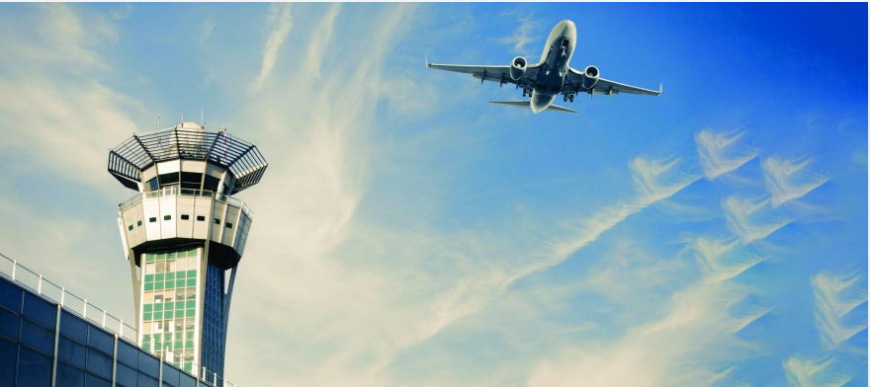
Africa’s aviation industry is on the cusp of a significant rebound, with air traffic across the continent steadily returning to pre-pandemic levels. Following the severe disruptions caused by the COVID-19 pandemic, which grounded fleets and stifled passenger demand, African airlines and airports are seeing renewed activity, driven by increased demand for both domestic and international travel.
One of the key indicators of this recovery is the resurgence in passenger numbers. In many African countries, domestic travel has rebounded more quickly than international routes, as restrictions eased earlier for local travel. Countries like Nigeria, Kenya, and South Africa have witnessed a strong resurgence in their domestic aviation sectors, with airlines expanding routes and increasing flight frequencies to meet growing demand. According to the International Air Transport Association (IATA), Africa’s overall passenger traffic is expected to reach 80% of 2019 levels by the end of 2024, with full recovery anticipated by 2025.
The reopening of key international routes has also played a critical role in boosting Africa’s aviation industry. Major airlines like Ethiopian Airlines, EgyptAir, and Kenya Airways have resumed most of their long-haul flights, reconnecting Africa with Europe, the Middle East, and Asia. As global tourism recovers, Africa is also seeing an influx of international visitors, helping boost the continent’s overall air traffic. Inbound travel from Europe and the United States, in particular, is nearing pre-pandemic levels, driven by renewed interest in Africa’s safari, eco-tourism, and cultural destinations.
Cargo traffic, which remained a lifeline for many African airlines during the pandemic, continues to grow. Airlines like Ethiopian Airlines, which expanded its cargo operations significantly during the crisis, are reaping the benefits of Africa’s role in global trade, particularly in the transport of pharmaceuticals, agricultural products, and other essential goods. The strong performance of air cargo has helped stabilize airline revenues and is expected to continue being a key growth area for African aviation.
Despite the positive outlook, the recovery of Africa’s aviation sector has not been without challenges. Rising fuel costs, economic instability in some regions, and the lingering effects of travel restrictions have slowed the return to normalcy for some airlines. Additionally, many African countries are still grappling with infrastructure deficiencies, such as outdated airports and limited air traffic control systems, which may hamper long-term growth if not addressed.
 The industry’s recovery is also closely tied to vaccine distribution and government policies. African airlines are working closely with health authorities and governments to ensure the safety of passengers, while simultaneously advocating for the easing of remaining travel restrictions that continue to hinder international travel. Governments across the continent have also implemented financial support programs for airlines, aimed at reducing the long-term economic impact of the pandemic on the aviation industry.
The industry’s recovery is also closely tied to vaccine distribution and government policies. African airlines are working closely with health authorities and governments to ensure the safety of passengers, while simultaneously advocating for the easing of remaining travel restrictions that continue to hinder international travel. Governments across the continent have also implemented financial support programs for airlines, aimed at reducing the long-term economic impact of the pandemic on the aviation industry.
As Africa’s aviation industry edges closer to pre-pandemic levels, there is optimism that the sector will emerge even stronger. The pandemic has spurred a wave of innovation, including the accelerated adoption of digital technologies for ticketing, security, and passenger services, which are expected to enhance efficiency and improve customer experiences. Additionally, the growth of low-cost carriers (LCCs) and the liberalization of Africa’s air transport market through initiatives like the Single African Air Transport Market (SAATM) are expected to boost competition and make air travel more accessible across the continent.
Looking ahead, experts predict that African aviation will play a crucial role in driving economic growth, tourism, and regional integration. With the continent’s population projected to rise significantly in the coming decades, and urbanization fueling demand for travel, Africa is set to become one of the fastest-growing aviation markets globally. The industry’s return to pre-pandemic levels marks a critical milestone in Africa’s journey to becoming a global aviation powerhouse, and its future looks brighter than ever.
Ennywealth


